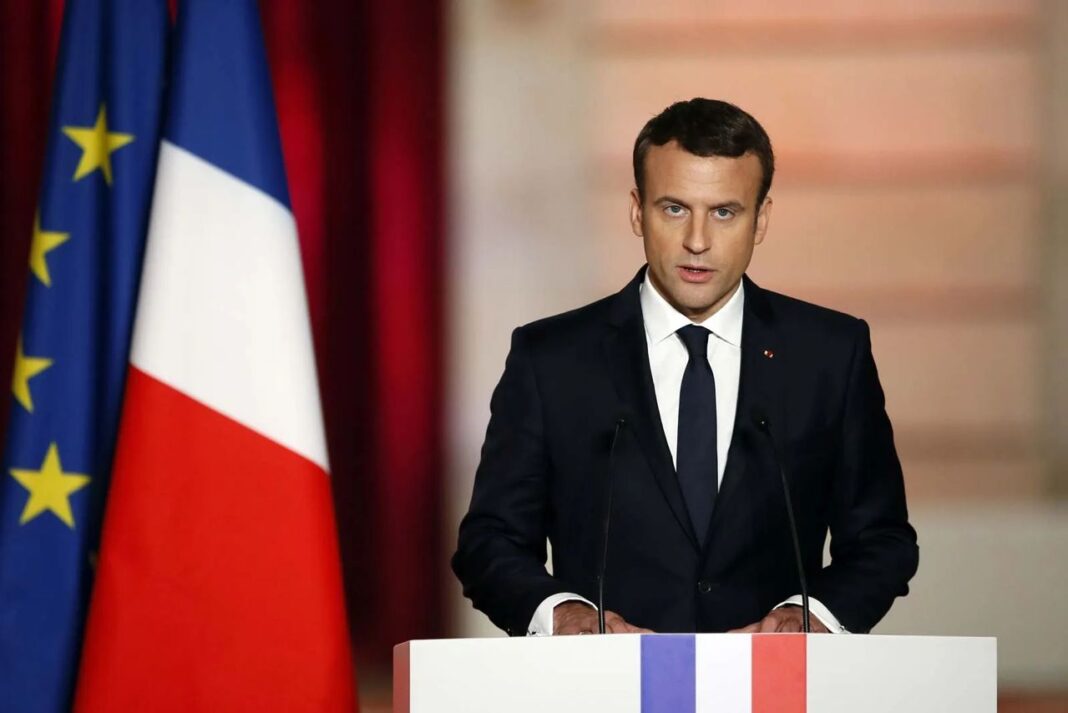A former prime minister of France has publicly demanded that President Emmanuel Macron resign following mass protests that have shaken towns and cities across the country. The call intensifies a political crisis that has taken hold in France over issues of pension reform, rising costs and public discontent with the government’s direction. The demand from a high profile former official signals growing erosion of support within the political class itself.
Olivier Véran, who served as prime minister between 2022 and 2024, joined a chorus of critics in saying it was time for Macron to step aside. Véran told reporters that the protests reflect a nation’s anger and that the president no longer holds the moral authority to govern effectively under current conditions. The demand coincides with mounting pressure inside Parliament and increasing civil resistance across France’s regions.
The crisis erupted after Macron’s government pushed through a contentious pension reform without a full parliamentary vote. The measure raised the retirement age and altered benefits, provoking widespread anger among labor unions, students, public sector workers and pensioners. Protests have at times turned violent, with reports of injured officers, damaged property, road blockades and clashes in central Paris, Lyon, Nantes and Marseille. Emergency numbers and public services in affected cities report disruptions.
In his statement, Véran said Macron’s presidency had passed a point where only bold humility could restore legitimacy. He argued that continued holding on to power amid civic rupture was untenable. He called for an exit that respects France’s institutions but also allows for fresh leadership to reestablish public trust. Analysts say such a public break by an ex-PM adds fuel to the fire and may embolden others to speak out.
Macron has defended his reforms repeatedly, stating they were necessary to ensure France’s fiscal health and competitiveness. He has dismissed extreme calls for resignation as political opportunism, saying only the ballot can judge a president’s mandate. His supporters argue that bold reforms, though painful, are part of leadership, and that stability must be maintained in a fractious world.
The political rumble is now louder in French media and social discourse. Editorials in prominent newspapers reflect unease. Some call Véran’s demand a tipping point; others warn that the presidency is too strong an institution to be shaken by protest alone. Meanwhile, opposition parties are evaluating whether to position themselves for power should the president step down or face early elections.
Public sentiment is fragmented. Many protesters demand Macron’s removal, saying he has lost touch with ordinary citizens beset by inflation and insecurity. Others argue that resignation would deepen instability and that reforms are still necessary. Polls already show Macron’s approval ratings sagging as more view his government as increasingly out of step with France’s social mood.
Political analysts warn that France now enters a high risk moment. If Macron refuses to desist or concede dialogue, continued protests could lead to regional breakdowns of public services, more forceful state responses, and even fragmentation of political parties. A resignation could open a constitutional crisis over succession or early elections. European partners and markets are watching closely, fearful that shocks in one of the EU’s core nations may ripple into uncertainty and volatility beyond France’s borders.
For Nigerians and other observers the French crisis holds lessons. It shows how social pressure can challenge centralized power, how legitimacy is fragile in modern governments and how political survival depends on responsiveness and trust. Macron’s government faces a test few leaders handle well: whether to bend or break.
For now, Olivier Véran’s demand adds to the accumulation of crisis. Whether his call becomes a turning point or an echo in the storm depends on what Macron does next, how protesters sustain momentum, and whether the institutions of French democracy hold firm under pressure.
Samuel Aina

